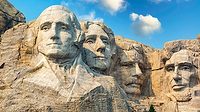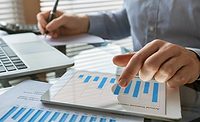When Benjamin Franklin emerged onto the steps of Philadelphia’s Independence Hall at the close of the 1787 Continental Convention, he was asked whether the Founding Fathers had decided on a monarchy or a republic. “A republic, if you can keep it,” he reportedly said.
Only once has the ability to keep that republic been in serious doubt – in the years up to and during the Civil War. Could it be in doubt again today? If so, security can be a model for preserving the republic.
How did we get here? Long, unstable fault lines in the bedrock that undergirds U.S. society have become active, sending seismic waves that have shaken the social contract. Citizens can’t agree on basic facts. People question whether COVID-19 is real amid shifting medical advice and conflicting data on case and death rates. The footing keeps getting less stable. Economic freefall. Surging unemployment. White supremacists, fascists and anarchists boldly emerging from the shadows. Loss of faith in law enforcement by swaths of the populace after black citizens perished in police custody. Rampant misinformation campaigns by anonymous groups and nations. The result is a bitterly split populace that has retreated to their respective echo chambers.
Each step toward human rights, or even civil discourse, spawns a group like the Boogaloo Boys or Antifa. Political correctness routinely stifles free speech on campuses and elsewhere. Franklin’s challenge is being tested like never before.
America’s fault lines hearken back to its founding. The U.S. was weaned on the twin but competing principles of rugged individualism and collectivism. Individualism is 17th century trappers, 19th century pioneers and cowboys, as well as the current era’s technology and internet titans. It is an entire social and economic system that exalts private property and “moderate selfishness,” as Alexis de Tocqueville phrased it in his mid-nineteenth century classic Democracy in America.
Collectivism, or communitarianism, is the 17th century Mayflower Compact, 19th century utopian communities, and today’s internet of open networking and Wikipedia – a competing system that puts the group above the individual, which de Tocqueville called the “soft tyranny” of bureaucracies.
Today’s flashpoint in this tension is whether a face mask is a symbol of oppression by an overreaching nanny state or an expression of responsibility for other’s welfare. Fortunately, security professionals represent an example of finding common ground.
We need to characterize the current crisis not as a culture war or a battle between the economy and flattening the curve, but as a call to service to help our neighbors. We are in a war against Coronavirus – not simply as Americans, but as human beings – and we need our citizens to embrace public service.
Nowhere can you find people more archetypically individualistic than in private security. They trend Republican, libertarian, law-and-order oriented, anti-regulation and intensely patriotic. They sound like individualists in the extreme, but you will find no group of people more dedicated to public service or aiding their fellow human being.
Consider the case of a corporate security colleague who moved from the “People’s Republic of New Jersey,” as he puts it, to Texas. On his way there, he navigated a westward jughandle so he could avoid the freedom-suppressing state of Maryland. As extreme as this sounds, this man would put his life on the line to save or help anyone. Countless security professionals come from the ranks of the military or law enforcement, where coming to the aid of a brother or sister – or any victim – is burned into their psyche. Most would say that there is no higher calling than public service. In fact, many of these “rugged individualists” were the first to enlist to go to Vietnam, Iraq and Afghanistan. There is nothing more collectivist than that.
Addressing officers who were potentially on the verge of a coup, General George Washington uttered words that serve well today and offer hope that we can rise to Benjamin Franklin’s challenge to the American citizenry: “You will, by the dignity of your conduct, afford occasion for posterity to say, when speaking of the glorious example you have exhibited to mankind, ‘Had this day been wanting, the world had never seen the last stage of perfection to which human nature is capable of attaining.’” Let the dignity of our conduct set the example.





